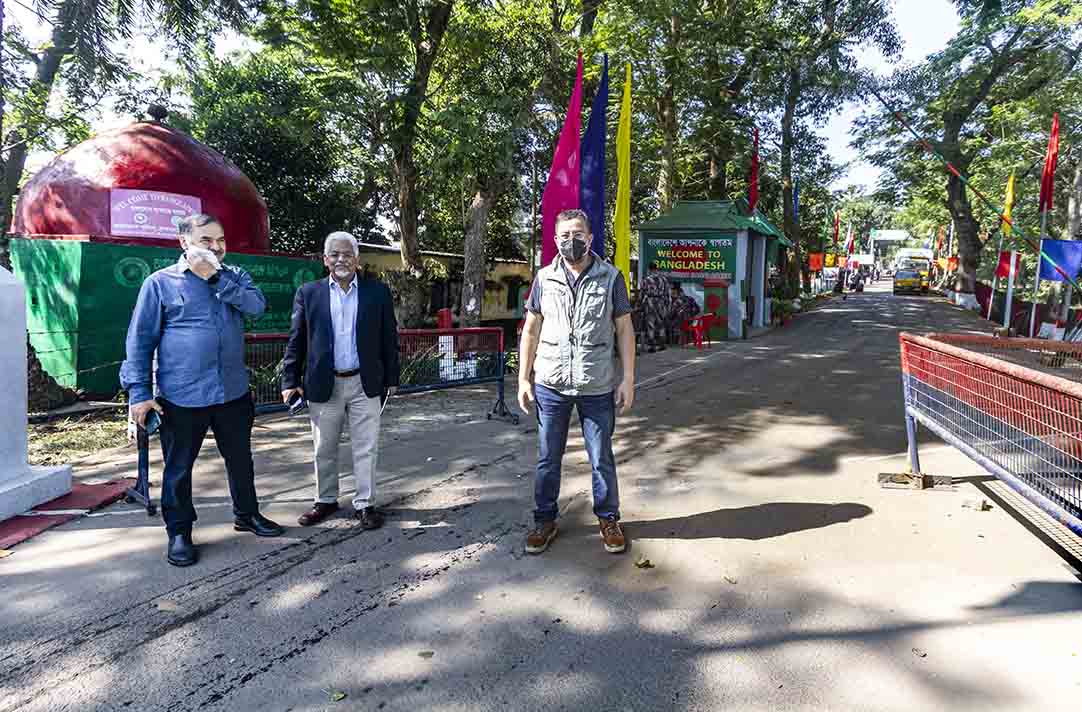Book: Jungle Passports: Fences, Mobility, and Citizenship at the Northeast India-Bangladesh Border
Author: Malini Sur
Publisher: Penn
Price: $29.95
Malini Sur’s portrayal of the world of the India-Bangladesh borderlands in the Northeast sector is fascinating not the least for the courage and the commitment she demonstrates in taking the position of a ‘subject-analyst’ and not just that of an objective observer. She adeptly balances the feel and the sense of this world as a subject, absorbing all its anxieties and joys, with the need to keep an academic distance while writing of it.
Much of the account is anecdotal. There are accounts of her cycling along the border with a Garo woman who becomes a companion, guide and informant. She happily immerses herself in the true organic sense into the Garo community’s reverence for, insecurities about, and attachment to its forested homeland now split between India and Bangladesh. She learns that Garos never refer to an elephant or a tiger as elephant or tiger, but as grandfather, uncle and so on in the belief that these animals are aware of the respect they are paid and reciprocate it in equal measure.
This respect extends to the soldiers on duty at border posts. Amidst all the difficulties and stresses of the profession, this nurtures a convivial atmosphere between Garo traders and soldiers. But the author does not miss the counter-narratives. Clan elders are wary that this conviviality can take young Garos, especially women, towards matrimonial alliances outside the community, leading to the disruption of inheritance of clan lands in the matrilineal society. There are many more such small, but touching, details that bring out the human side in these harsh situations. In another passage, she describes the thrill of a boy on learning that he would be given an entire boiled egg at a meal and that he would not have to share it with his siblings in the impoverished home of a Muslim trader near the border in Bangladesh.
This picture of the borderlands is startlingly different from its popular conceptualization as being infested with thugs, drugs, violence, immorality, espionage and so on, an image reinforced by sensational portrayals in the media. This is a unique world, with its own moral order, emotionally affiliated to itself first before any nation, a world that would have been happy to be left alone. Also detailed is the modus operandi of border-crossings by the denizens of the borderland; the impulse which drives them is almost universally a search for livelihood and not any nationalistic commitment. This also contrasts with the other perception of borderland migrants as invaders eager to take over others’ lands.
Nations and their norms come as alien intrusions. First by the British administration which categorized land and people on the basis of the scope of revenue, the primitivity of communities, religion, and then by modern India and Bangladesh with their own brands of nationalism. All have had profound impacts on life in these borderlands. Even events remote to the region, such as the outbreak of unrest in Kashmir or the visit of Barack Obama to New Delhi, have meant fluxes in risks and anxieties for a people for whom mobility across the border has been a way of life much before the border existed.
The thriving cattle trade illustrates this sharply. It is banned in India. In Bangladesh, the import remains illegal till the commodities have been sanitized by their passage through designated animal corridors and the taxes cleared. Sur indicates that, legal or illegal, the trade is destined to stay because it is driven by market impulses and livelihood needs on both sides of the border. In India, it remains a dangerous, masculine and largely nocturnal trade. In Bangladesh, it is a respectable trade drawing the participation of even well-heeled, middle-class women. The irony and hypocrisy involved are obvious. In the true tradition of subaltern historiography, this is history written from below.
This review was first published in The Telegraph. The original can be read here.












